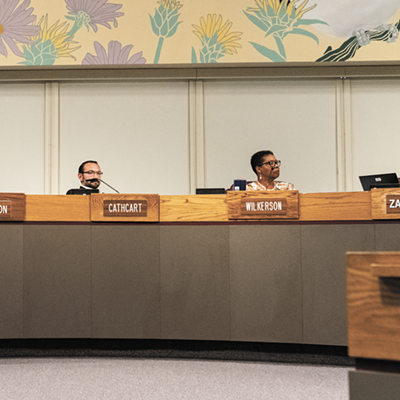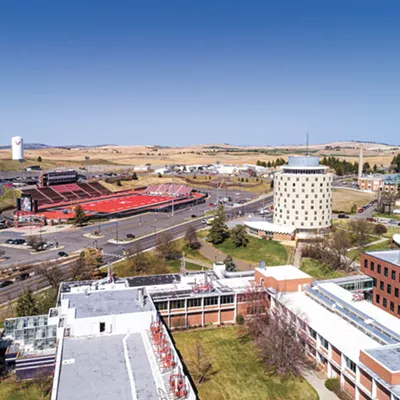
In November, voters passed Initiative 2066 — pitched by the organization Let's Go Washington as a way to "stop the gas ban" — with 51.7% of the vote.
Specifically, the initiative was written to protect natural gas access, going so far as to prohibit state and local governments from even discouraging natural gas use. The initiative also makes sweeping changes to multiple state laws, including the rules guiding the State Building Code Council, as well as House Bill 1589, which dictates how Puget Sound Energy, the state's largest utility, needs to plan for the future.
In fact, a lawsuit filed in King County Superior Court on Dec. 11 by environmental groups and local government agencies argues that the initiative changes too many things.
Specifically, the groups are suing the state of Washington (which is tasked with defending voter-approved initiatives) to argue that the initiative violates multiple provisions of the state constitution, including the "single subject requirement."
The single subject rule dictates that "No bill shall embrace more than one subject, and that shall be expressed in the title." It applies to statutes passed by lawmakers in Olympia, as well as those passed by the people via the initiative process.
The plaintiffs in the lawsuit include the city of Seattle, King County, the Washington Solar Energy Industries Association, Anthony Maschmedt — a taxpayer who previously served on the State Building Code Council — and the environmental organizations Climate Solutions, Washington Conservation Action, and Front and Centered.
Some of the provisions of I-2066 change things unrelated to natural gas, argues Kai Smith, a partner at Pacifica Law Group who is one of the attorneys for the plaintiffs. (Seattle and King County are being represented by their own attorneys.)
For example, while maintaining a line in state law that says the State Building Code Council shall design state energy code to "construct increasingly energy efficient homes and buildings," the initiative strikes the following line: "that help achieve the broader goal of building zero fossil-fuel greenhouse gas emission homes and buildings."
"Fossil fuels, of course, concern much more than natural gas: Oil, propane, the whole panoply of fossil fuels," Smith says.
I-2066 also changes the Washington Clean Air Act, adding a provision that says clean air authorities around the state "shall not in any way prohibit, penalize, or discourage the use of gas for any form of heating, or for uses related to any appliance or equipment, in any building."
"That potentially impacts the regulation of pollution and air quality," Smith says. "Those are some of the ways that it strays from just natural gas."
Previously, the Washington Supreme Court has thrown out other initiatives that violated the single subject rule.
In 2001, the Court ruled that Initiative 722, passed by 58% of voters in November 2000, violated the rule and was void. That initiative had asked, "Shall certain 1999 tax and fee increases be nullified, vehicles exempted from property taxes, and property tax increases (except new construction) limited to 2% annually?"
In 2020, the state Supreme Court also found the Tim Eyman-backed Initiative 976, which would reduce or remove "motor vehicle taxes and fees," ran afoul of the single subject rule. In addition to limiting annual car tab fees to $30, except for voter-approved charges, it would have repealed Sound Transit's authority to levy additional fees approved by voters.
Last week's lawsuit wasn't the first involving I-2066. The Building Industry Association of Washington filed a lawsuit in Thurston County Superior Court on Dec. 6, seeking to require the State Building Code Council to uphold the provisions of I-2066 and update the 2021 state energy code to comply.
The building industry lawsuit followed a vote by the State Building Code Council on Nov. 22 to keep the 2021 energy code in place while the council's staff works to comply with I-2066 through its regular rulemaking process, instead of an emergency process.
Let's Go Washington founder Brian Heywood released a statement in response to the lawsuits last week.
"Washingtonians have voted to protect natural gas from being banned, now it's time for [Attorney General Bob] Ferguson and other statewide organizations to enforce this law. If the [State Building Code Council] won't follow the law, the governor should demand their resignations," Heywood's statement reads. "Meanwhile, as citizens struggle to afford housing and pay their energy bills, shamefully, the City of Seattle and King County are leading the charge to eliminate energy choice and make living more expensive.
"Washington voters made their position clear: they want to protect natural gas and energy choice," his statement continues. "Instead of spending time and money suing corporations, perhaps the AG, Seattle, and King County should focus on enforcing the law and protecting the will of the people."
Smith says the plaintiffs in the lawsuit seeking to find I-2066 unconstitutional don't expect they'll have a hearing scheduled until early 2025, potentially in January or February. ♦

























